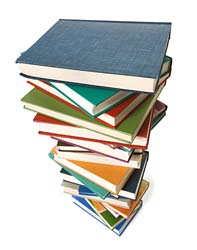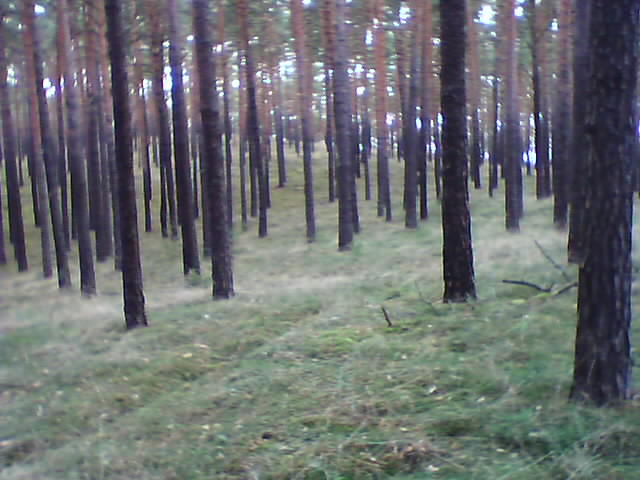Books of the Year 2007
/BOOKS OF THE YEAR 2007 These lists are always ridiculous, because no matter how much you read, you've only read the thinnest sliver of all that's been published in the year. (And what freak only reads books that came out that year? As though books went off, like cartons of milk?) Back when I was utterly broke, I could quite easily read a couple of hundred books annually, not one of which was published that year. Even now, I spent far more of this year re-reading 1960s and ‘70s science fiction (by Philip K. Dick
These lists are always ridiculous, because no matter how much you read, you've only read the thinnest sliver of all that's been published in the year. (And what freak only reads books that came out that year? As though books went off, like cartons of milk?) Back when I was utterly broke, I could quite easily read a couple of hundred books annually, not one of which was published that year. Even now, I spent far more of this year re-reading 1960s and ‘70s science fiction (by Philip K. Dick, Ursula K. LeGuin
, Frederick Pohl
and Thomas M. Disch
), than I did reading new stuff. (I have my reasons...)
Also, I still tend to read things a year or two after they've come out. That's partly because they're cheaper in paperback, but partly because I like to let history sort them out a bit for me, or I'd waste too much of my precious reading life on each year's most-hyped books. A couple of years after publication, the word-of-mouth is still doing its wonderful job. As a result, the few books that made a real impact on people are still hanging in there on the shelves, while the hyped and empty have long been remaindered. (This year I finally bought Mobius Dick by Andrew Crumey, after thinking about doing so for ages, because people I like kept mentioning it. And I’m halfway through it, and it’s great…)
But I did read some freshly delivered books this year, still with the umbilicus attached and throbbing, and some of them were very good. So here are my favourites, and why. (Recycling is good and wholesome and approved of by society, so a version of these may well pop up in the Irish edition of the Mail on Sunday soon, and also on Mark Farley’s excellent and bolshy blog, The Bookseller to the Stars):
BEST BOOKS OF 2007 THAT I’VE READ
Then We Came To The End – Joshua Ferris.
A smart, funny, painfully accurate book about office life (and death). And he’s written it from the collective point of view of all the workers (“How we hated our coffee mugs!”) Technically amazing, and FABULOUSLY difficult, he makes it look so easy you forget about it after sixty seconds. A Great American Novel. Serious respect is due.
There Are Little Kingdoms – Kevin Barry.
Vinnie Browne, in Charlie Byrne’s bookshop in Galway, forced me to buy this. Ignoring my anguished protests that modern Irish short stories are shite and I hate them. Well, I don’t hate these ones. Vinnie was right. This is the best Irish short story collection since Mike McCormack’s Getting It In The Head, which was the best since Frank O’Connor’s My Oedipus Complex
. Small-town Ireland, given a good, loving, seeing-to, from behind.
The Uncommon Reader – Alan Bennett.
The Queen joins a library, late in life, and, lost in literature, starts to neglect her duties. Her courtiers, concerned, take ever more drastic action… An utter, utter delight. I’m giving my mum a copy.
The Paris Review Interviews (Volume 2) – edited by Philip Gourevitch.
Writers from Isaac Bashevis Singer through Alice Monro to Stephen King discuss everything from their philosophy of life to their choice of pencil eraser. If you’re addicted to this sort of thing, as I am, then this is a lucky bag full of fecking huge rocks of crack.
OK that’s the official list I sent out. But writing it up, I totally forgot that Milan Kundera's The Curtain had been published earlier this year. I'd read it so thoroughly (several times), and it had sunk in so deep, that I'd vaguely assumed I'd had my bent, trashed copy for a couple of years. (And of course it overlaps a little with his earlier book, The Art Of The Novel
- ie he nicks bits and reuses them – so I had read some of it years ago). But The Curtain pretty much replaces The Art of the Novel. There’s a few extra years thinking and reading gone into it.
So add that to my list. Milan Kundera is one of the great thinkers about the novel, what it has done and what it can do. (And, as a gifted novelist, he's a lot easier to read than the most brilliantly original 20th century theorist of the novel, Mikhail Bakhtin, whose genius is muffled by godawfully impenetrable Russian Formalist prose).
 Kundera's key image is of the novel as a great forest, which writers have only just begun to explore. The Curtain is enlightening, entertaining, intriguing, and reassuring. Especially if, machete in one hand and pen in the other, you happen to be trying to cut your own path through that forest.
Kundera's key image is of the novel as a great forest, which writers have only just begun to explore. The Curtain is enlightening, entertaining, intriguing, and reassuring. Especially if, machete in one hand and pen in the other, you happen to be trying to cut your own path through that forest.
